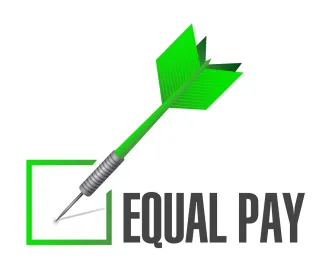Executive Summary
Effective October 31, employers operating or recruiting in New York City will no longer be permitted to seek information regarding the compensation history of their job candidates. Under an amendment to the New York City Human Rights Law signed into law by Mayor Bill de Blasio, employers will be prohibited from: (1) asking prospective employees about their current compensation rate or compensation history; (2) attempting to ascertain this information from other sources; and (3) relying on a candidate's salary history in determining compensation (including in negotiating a contract) except in limited circumstances. In preparation for this salary history ban, New York City employers should take steps now to review and revise their recruiting practices and documents.
Background
On May 4, Mayor Bill de Blasio signed into law a bill to amend Title 8 of the Administrative Code of the City of New York (the "Administrative Code") to include a new subsection making it unlawful and discriminatory for an employer to make inquiries related to an applicant's prior salary, or rely on salary history as a means to determine compensation for a prospective employee. Mayor DeBlasio and members of the City Council have made clear that the expressed purpose of the law is to close the pay-gap by eliminating a practice that perpetuates compensation inequities for women and people of color.
Pursuant to Section 8-107 of the Administrative Code, "to inquire" means (1) "to communicate any question or statement to an applicant, an applicant's current or prior employer, or a current or former employee or agent of the applicant's current or prior employer, in writing or otherwise, for the purpose of obtaining an applicant's salary history;" or (2) to conduct a "search of public records and reports for the purpose of obtaining an applicant's salary history." "Salary history" in this context encompasses an applicant's "current or prior wage, benefits or other compensation." While the law precludes employers from making inquiries about a candidate's salary history, it does not preclude employers from engaging in discussions with applicants about their salary expectations.
This law has three notable exceptions. First, the law provides that an employer may consider prior salary in compensation decisions when an applicant "voluntarily and without prompting" discloses his or her prior salary to an employer, employment agency, or employee or agent thereof. Second, the law does not preclude discussion, in the context of asking about candidates' salary expectations, of any unvested equity or deferred compensation that they would forfeit or have cancelled by virtue of their resignation from their current employer. Third, the law does not apply to candidates for internal transfers or promotions. In addition, while compensation is sometimes intertwined with productivity—especially for employees paid in whole or in part on a commission basis—the law does not bar inquiry into "objective measure[s] of productivity … such as revenue, sales or other production reports."
The law also does not prohibit employers from conducting non-salary related background checks or verifications of application information. It does, however, provide that, in the event such background checks or information verifications disclose salary history, the employer must refrain from using the information in determining compensation. In the event of a violation of the law, the potential remedies include compensatory damages, punitive damages, attorneys' fees and the imposition of a civil penalty up to $250,000.
What Employers Should Do Now
To prepare for and comply with the law, employers should consider the following:
- Revise employment applications and other pre-hire documents in order to avoid prohibited inquiries.Employers should review their employment applications, background check requests, and related forms in use in New York City to ensure they do not include requests for an applicant's prior salary.
- Educate those involved in the hiring process about this new prohibited area of inquiry. Employers should provide instruction (preferably in writing) to their human resources personnel, recruiters and employment agencies that they must refrain from requesting salary information in the recruitment or interview process. Any existing written protocols or guidelines regarding hiring practices, and specifically about prohibited areas of inquiry (for example, to avoid inquiries that relate to age, national origin, etc.), should be amended to include the salary history ban. Further, those involved in the recruiting process should be instructed that, where an applicant has volunteered compensation history information, the fact that the applicant volunteered the information without prompting should be noted in writing.
- Evaluate their practices for setting compensation for job vacancies. To the extent that an employer has used a candidate's current compensation as an important factor, the employer will need to adapt its approach. Nonetheless, employers can still do the following:
- Consider and confirm a salary history that is voluntarily disclosed by the applicant.
- Initiate general discussion about the applicant's expectations regarding compensation. For example, it is acceptable to ask: "What are you looking for in terms of compensation?", but not acceptable to ask: "How does what you are seeking compare to your current salary?"
- Ask about any objective measure of the applicant's productivity such as revenue, sales, or other production reports.
- Inform the applicant of the position's proposed salary range.
- Be aware that NYC is not alone. Although on the cutting edge, New York City is not alone in trying to address wage disparity with a salary history ban. Other jurisdictions with similar pay inquiry bans, either in effect or slated to go into effect, now include California, Delaware, Massachusetts, Oregon, Philadelphia, and San Francisco.





 />i
/>i

